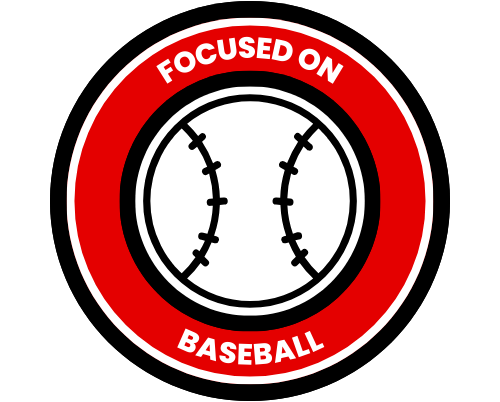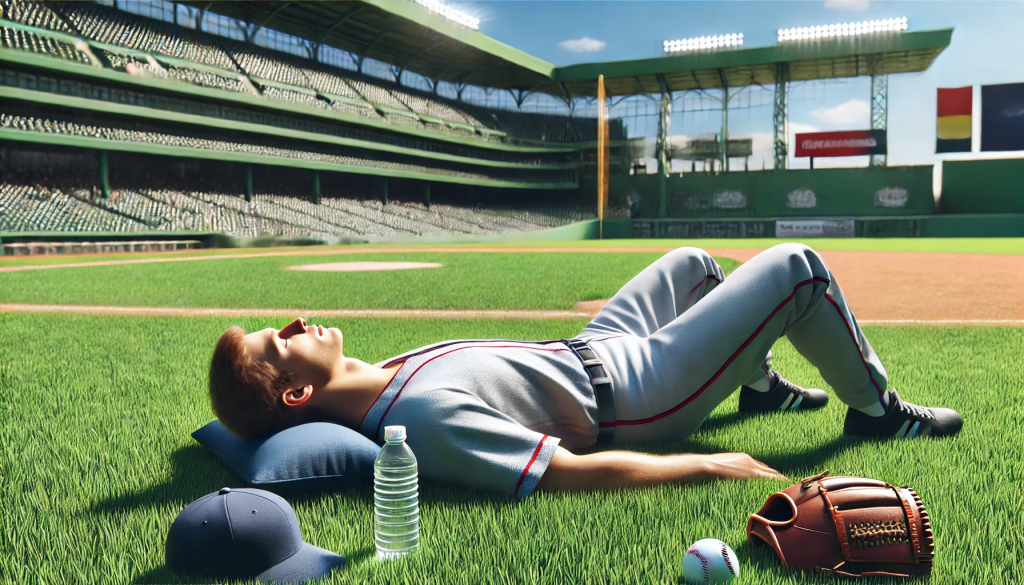The Benefits of Progressive Muscle Relaxation for Baseball Players
To succeed on the baseball field, both physical and mental performance are key to success. Whether it’s standing at the plate with the game on the line or maintaining focus in the outfield, a player’s ability to manage stress and optimize recovery can make the difference between wins and losses. One often-overlooked tool for achieving these goals is Progressive Muscle Relaxation (PMR).
What Is Progressive Muscle Relaxation?
Progressive Muscle Relaxation is a technique developed in the 1930s by Dr. Edmund Jacobson. It involves systematically tensing and then relaxing different muscle groups throughout the body. The process encourages awareness of physical tension and promotes a state of deep relaxation. For athletes, particularly baseball players, PMR offers a range of benefits that can enhance performance and overall well-being.
1. Enhanced Physical Recovery
PMR reduces muscle tension and encourages better blood flow to fatigued areas. This enhanced circulation helps deliver oxygen and nutrients essential for tissue repair, speeding up recovery after games or intense training sessions. This can be beneficial for all players, but especially so for starting and relief pitchers. By addressing muscle tightness, players also experience less soreness and improved flexibility. Additionally, regular PMR can decrease delayed onset muscle soreness (DOMS) and support optimal recovery routines that allow players to perform consistently at their peak.
2. Improved Focus
The process of tensing and relaxing muscles fosters mindfulness, bringing attention to the present moment. This mindfulness translates to enhanced focus during games, helping players stay in tune with their tasks, whether it’s fielding, batting, or strategizing. The heightened focus also helps players block out external distractions, such as crowd noise or opponent tactics, and concentrate solely on their performance. If football is a game of inches, baseball is a game of milliseconds and millimeters. Improved focus could be the difference between barreling up a fastball or swinging through it.
3. Injury Prevention
Regular PMR practice minimizes chronic muscle tightness and imbalance, which are common precursors to injury. By keeping muscles supple and relaxed, players can reduce their risk of strains, overuse injuries, and even more serious conditions such as tendonitis. Furthermore, the relaxation induced by PMR allows for better joint mobility and range of motion, key factors in avoiding movement-related injuries during gameplay. As players grind through a long season, keeping the mind and body in sync is of paramount importance.
4. Enhanced Mental Clarity
By calming the mind and clearing it of distractions, PMR creates space for better decision-making. Players can think strategically and execute plays with confidence, even under pressure, thanks to the mental clarity fostered by PMR. This clarity extends beyond the field, helping players analyze game footage or practice drills with greater focus and insight. When players are operating at their peak, they’re more likely to lay off a pitcher’s pitch and wait for something they can do damage with. Conversely, the difference between a singular pitch hitting the black or drifting back over the plate can be the difference in the outcome of a game.
5. Increased Body Awareness
PMR enhances a player’s ability to sense tension or discomfort in specific muscle groups. This heightened awareness allows players to address issues early, through stretching, rest, or targeted exercises, before they develop into significant problems. Over time, this increased body awareness can also improve posture and biomechanics, leading to more efficient and effective physical performance on the field. The repetitious movements in baseball need to be perfectly choreographed in order for success on the diamond. Harnessing every ounce of bodily control available will serve team and individual goals.
6. Stress Reduction
By systematically releasing tension, PMR decreases the body’s stress response. This reduces the release of stress hormones like cortisol and allows players to maintain a calmer state of mind. Stress reduction through PMR helps in staying composed during high-pressure moments, such as crucial pitches or at-bats. Over time, reduced stress levels can also lead to better immune system function, helping players stay healthy throughout a long season. Yogi Berra once said: “Baseball is 90 percent mental. The other half is physical.” The math is a bit wonky here but the point is clear. Baseball is a mental game first and foremost in that operating at peak efficiency maximizes the uncommon physical talent baseball players possess.
7. Improved Breathing Patterns
The practice of PMR encourages deep, diaphragmatic breathing, which enhances oxygen exchange and promotes relaxation. Better breathing not only supports physical endurance but also keeps players composed during tense moments. Controlled breathing learned through PMR can be particularly useful during high-pressure scenarios like pitching in a tight inning or batting with a full count with the game on the line. At any level, being calm and under control is linked with success.
8. Better Sleep Quality
PMR relaxes the body and mind, making it easier to fall asleep. The deep relaxation achieved through PMR helps players avoid tossing and turning, ensuring they wake up feeling refreshed. This better quality of sleep supports energy levels, cognitive sharpness, and overall performance. For players who struggle with insomnia or restless sleep due to performance anxiety, PMR serves as an effective pre-sleep ritual to promote restfulness. The human brain and body is, in a sense, a complicated machine. Just like any mechanical device, it can go out of whack. Practicing PMR is a way to reboot the mind and body and keep everything running on time.
9. Reduced Anxiety
PMR helps players gain control over their physiological responses to anxiety. By creating a routine of relaxation, players can mitigate performance-related stress and approach games with greater confidence. Over time, PMR can help build resilience against anxiety, making players better equipped to handle the mental challenges of the game. If we think of the human brain as a computer then anxiety is malware. Being able to damp it down and get into “The Zone” more frequently can lengthen hot streaks and slash the duration of slumps.
10. Greater Overall Well-being
Beyond performance, PMR supports both mental and physical health. The relaxation it provides contributes to lower blood pressure, reduced fatigue, and an overall sense of balance and resilience, enabling players to sustain their passion for the sport. Additionally, the practice fosters a sense of control and self-efficacy, empowering players to navigate challenges both on and off the field.
Progressive Muscle Relaxation is a simple yet powerful tool that baseball players can use to enhance their physical game through their mental game. From improving recovery and reducing stress to fostering better sleep and body awareness, PMR offers a host of benefits that can help players perform at their best. By making PMR a regular part of their routine, baseball players can not only improve their performance but also support overall health and longevity in the sport.



